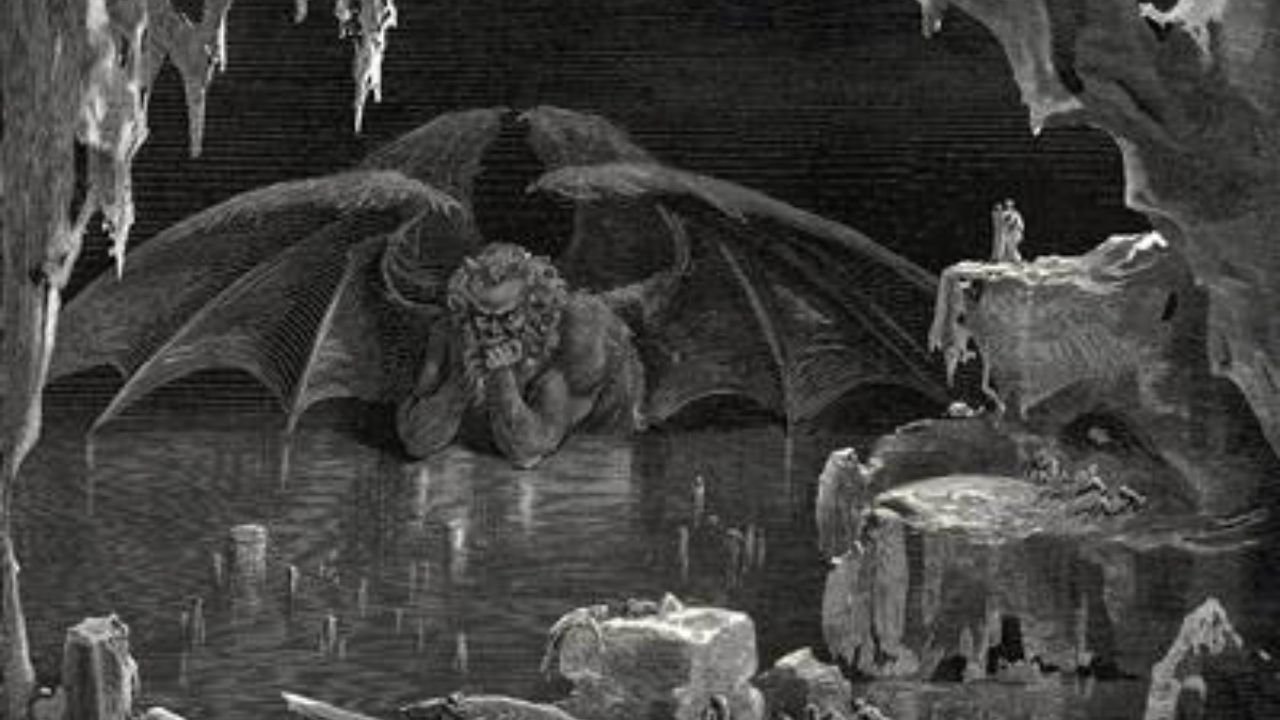The intriguing concept that “Satan can not create only corrupt and destroy” has long captured the interest of the faith-based community, theological scholars, and spiritual seekers. Satan, often portrayed as the embodiment of evil, is perceived in religious and spiritual contexts as possessing limited power. While God’s creation is boundless and life-giving, Satan’s role is construed as one that only distorts and devastates. In this comprehensive exploration, we will examine Satan’s limitations, methods of corruption, theological perspectives, and ways to overcome his influence. By understanding Satan’s nature, we can better prepare ourselves for spiritual battles and cultivate resilience in our faith.
Understanding Satan’s Limited Power
The notion that Satan’s power is constrained is rooted in various religious texts and traditions. According to the Bible, Satan was once a high-ranking angel named Lucifer, who fell from grace due to pride and rebellion against God. This fall signifies a transition from a being of light to one of darkness, stripped of the ability to create. Many other religious texts, including the Quran and Jewish writings, depict similar narratives highlighting Satan’s fall and subsequent limitations.
Despite his cunning, Satan lacks the divine spark necessary for creation. This inability to generate new life or tangible outcomes places him in stark contrast with God, who is omnipotent and the source of all creation. Satan’s power lies not in crafting new realities but in twisting and tarnishing what already exists. By understanding these limitations, believers can recognize Satan’s actions for what they truly are—manipulations rather than genuine creativity.
Satan’s Methods of Corruption and Destruction
Throughout history, numerous examples illustrate how Satan exercises his influence through corruption and destruction. Religious texts abound with stories of individuals led astray by temptation, deceit, and malevolence. From Adam and Eve’s transgression in the Garden of Eden to Judas Iscariot’s betrayal of Jesus, Satan’s corruptive force is a recurring theme.
Satan’s destructive tactics are multifaceted and often subtle. Temptation is one of his primary tools, luring individuals away from their moral and spiritual convictions. Doubt and despair, too, are seeds sown by Satan to undermine faith and create discord. By distorting truth and fostering division, he weakens the fabric of society and erodes personal integrity. Through understanding these methods, we can better defend against his insidious influence.
Theological and Philosophical Perspectives
Renowned theologians, scholars, and spiritual leaders have long deliberated on Satan’s power and its implications for faith and spirituality. Saint Augustine, for example, posited that evil is merely the absence of good, not an independent force capable of creation. This suggests that Satan’s power is inherently parasitic, feeding off the goodness inherent in God’s creation.
Similarly, philosopher C.S. Lewis depicted Satan as a figure who thrives on deception and manipulation, lacking any true agency or ability to create. Modern theologians continue to explore these ideas, emphasizing the importance of recognizing Satan’s limitations while drawing strength from one’s faith.
How to Resist and Overcome Satan’s Influence
Resisting and overcoming Satan’s influence requires vigilance, faith, and practical strategies rooted in religious teachings. Prayer is a powerful tool for protection and spiritual fortification, serving as both a shield and weapon against evil. Regular engagement with scripture provides guidance and wisdom, reinforcing one’s beliefs and values.
Community and fellowship also play vital roles in combating Satan’s influence. By fostering connections with like-minded individuals, believers can support one another in their spiritual journeys and resist temptation. Maintaining a strong moral compass and committing to personal growth further enhance one’s resilience against corruption and destruction.
You May Also Like: Switchblad3slut Journey Through Time
Conclusion
In summary, the idea that “Satan can not create only corrupt and destroy” offers valuable insights into spiritual warfare and the nature of evil. By understanding Satan’s limitations, methods, and the perspectives of theologians, we can better equip ourselves to resist his influence. Through prayer, scripture, community, and personal growth, we can cultivate resilience in our faith and emerge victorious in spiritual battles. For those seeking further guidance and support, consider exploring resources and engaging with faith-based communities to strengthen your spiritual foundation and better understand the complexities of this age-old struggle.
FAQs
Why is Satan considered unable to create?
Satan is believed to lack the divine spark necessary for creation, as his power is derived from manipulation and distortion rather than generating new realities.
What are some examples of Satan’s corruptive tactics?
Satan uses temptation, doubt, despair, and deception to lead individuals astray and create discord in society.
How do theologians view Satan’s power?
Theologians like Saint Augustine and C.S. Lewis view Satan as a parasitic force, lacking true agency and the ability to create independently.
What practical strategies can help resist Satan’s influence?
Prayer, scripture study, community support, and personal growth are essential strategies for resisting and overcoming Satan’s influence.
How can one’s faith be strengthened in the face of spiritual battles?
Engaging in prayer, scripture, community, and personal growth, along with seeking guidance from faith-based communities, can fortify one’s spiritual foundation.










